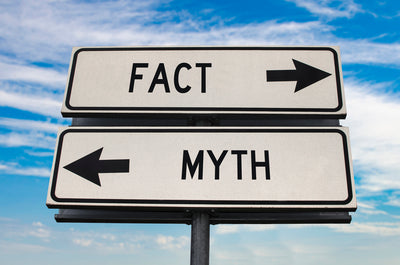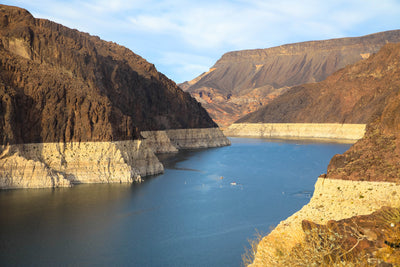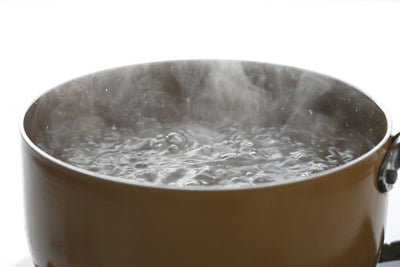Water Quality InformationWritten By Actual Experts
RSS5 Surprising Myths About Drinking Water

How Do Droughts Affect Your Drinking Water?

Emily Driehaus | Science Communication Intern
**Updated 6/30/2022 to include latest updates
The ongoing drought in the western United States has severely depleted water supplies and left many states with water shortages. It's been going on for so long that it's now being called "aridification" in certain areas. Water restrictions have been implemented in parts of California and other western states. The lack of water can have an impact on both drinking water quality and water infrastructure.
Droughts and Water Supplies
The most apparent impact of a drought is the loss of water resources due to the lack of precipitation. An increase in temperature can also speed up the rate of evaporation of water from water supplies. This combination of factors can lead to drought conditions like what is currently being seen in the western U.S. Both natural bodies of water and human-made reservoirs are being depleted at alarming rates, leading to water shortages and restrictions.
How Can Droughts Impact Water Quality?
A U.S. Geological Survey study found that droughts may lead to elevated levels of naturally occurring arsenic in private wells and groundwater, and that the longer a drought lasts, the higher the probability of arsenic concentrations that exceed EPA’s standard for drinking water. Arsenic is naturally occuring in bedrock and sediments around the world and is commonly reported in private wells. Continued exposure to arsenic from drinking water is associated with an increased risk of several types of cancers and other adverse health effects.
A lack of rainfall can lead to reduced flow of rivers and streams, causing stagnation. Rainfall and other precipitation helps to keep rivers and streams flowing, but this stagnation from a reduced flow can lead to a buildup of pollutants. Microorganisms and viruses can contaminate stagnant water and can be transmitted through both drinking water and water used for watering crops. People who use private wells for drinking water are also more susceptible to these contaminants, as there is little flow during a drought. Additional water quality impacts during a drought include; turbidity, taste and odor, pathogen concerns, and challenges in managing disinfection byproducts (DBPs).
Impacts on Water Infrastructure:
The low water supply caused by droughts can have an impact on water systems, especially smaller systems. Poor water quality can affect a treatment facility’s ability to meet acceptable drinking water standards. This loss in water pressure can lead to boil-water advisories, which can add to the heat that often accompanies drought. Older pipes can also exacerbate water loss during a drought due to leaks.
Future Considerations
With climate change increasing the frequency and severity of droughts, the EPA is looking to help communities with drought resiliency. These efforts include installing water-efficient plumbing, such as low-flow toilets and showerheads that conserve water. Encouraging water reuse is also part of these efforts. For example, using water from a shower to water plants could be part of these efforts. In addition, many states have begun programs to encourage or require drought-tolerant plants and landscaping be installed in place of lawns. In fact, for each square foot of grass removed, homeowners save an average of 44 gallons of water a year. As climate change exacerbates the impacts of droughts, these water conservation efforts will become increasingly important.
How Do I Prepare for Water Shortages in a Drought?
According to the USGS, preparation before a drought should focus on water conservation. Replacing leaky plumbing and installing low-flow fixtures can conserve water in the long run, especially during a drought. During a drought, the Red Cross recommends not pouring water down the drain when it could be used for another purpose, such as watering plants. Conserving as much water as possible will allow for more water from faucets to be used for drinking during a drought.
Other Articles We Think You Might Enjoy:Plastic pipes are polluting drinking water systems after wildfires – it's a risk in urban fires, too
How Do Hurricanes Affect Your Drinking Water?
How Are Public and Private Water Systems Susceptible To Temporary Water Outages?
Does Boiling My Water Purify It?

Hydroviv's Science Team
Our tech support team gets a lot of questions from people looking to purify their water by boiling or freezing it. Doing a quick web search, we learned that there is A LOT of bad information out there on the topic.
Will Boiling Or Freezing My Water Remove Lead, Arsenic, Mercury, PFAS, & Chromium 6?
No! Unfortunately, freezing or boiling water to purify it does not remove chemicals like lead, arsenic, mercury, chromium 6, PFAS, or barium. The only way to remove these chemicals is by using a quality water filtration system. If you'd like to find water filters that remove harmful contaminants from tap water, check out this Duke University/NC State water filter study. We have our favorite NSF/ANSI certified custom water filter, but there are other effective systems out there as well!
What Does Boiling My Water Protect Against?
In the United States, we are very fortunate that modern disinfection practices have nearly eliminated widespread waterborne illness. However, sometimes unplanned things do happen (e.g. water main breaks) which opens up an opportunity for biological contamination. When this happens, municipalities may issue a boil order or notice, because boiling water kills potentially dangerous microorganisms.
In the event your water company issues a boil water advisory, the CDC provides specific advice on what you should do. Their guidance covers many different types of water uses, and specifically advises you to boil the water you use for drinking and preparing food. They also advise that you use bottled or boiled water for brushing your teeth, and when giving water to pets.
What Does Freezing My Water Protect Against?
Freezing things slows down the growth of bacteria, and is the reason why frozen foods can be stored for long periods of time.
Other Articles We Think You'll Enjoy
Things To Consider Before Buying A Reverse Osmosis System5 Things To Know About Chromium 6 In Drinking Water
Why TDS Meters Don't Tell You Anything About Lead




